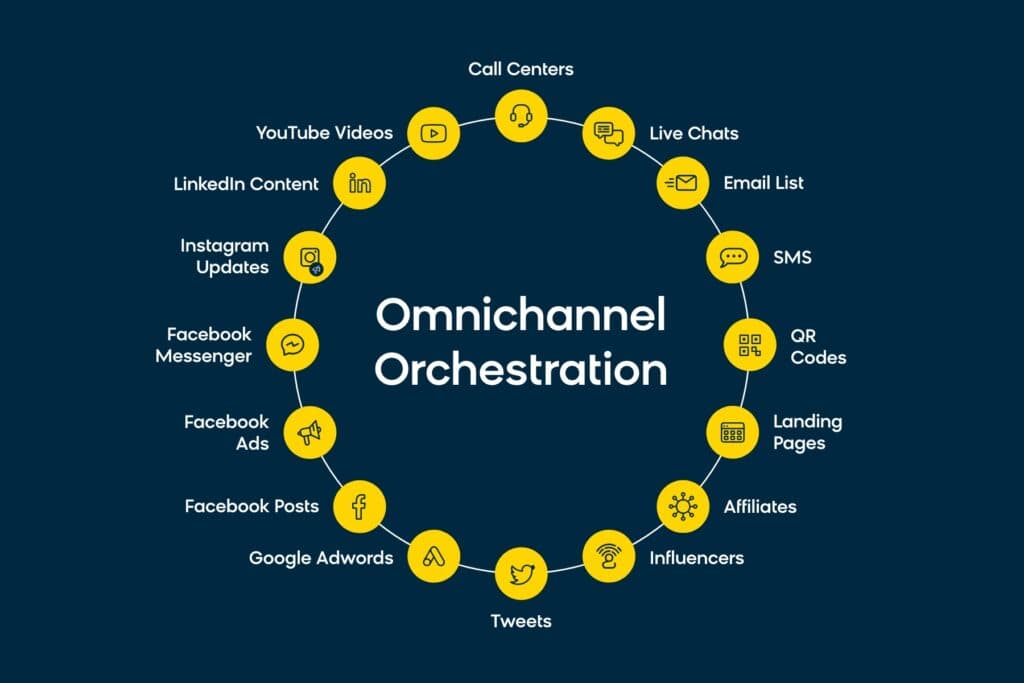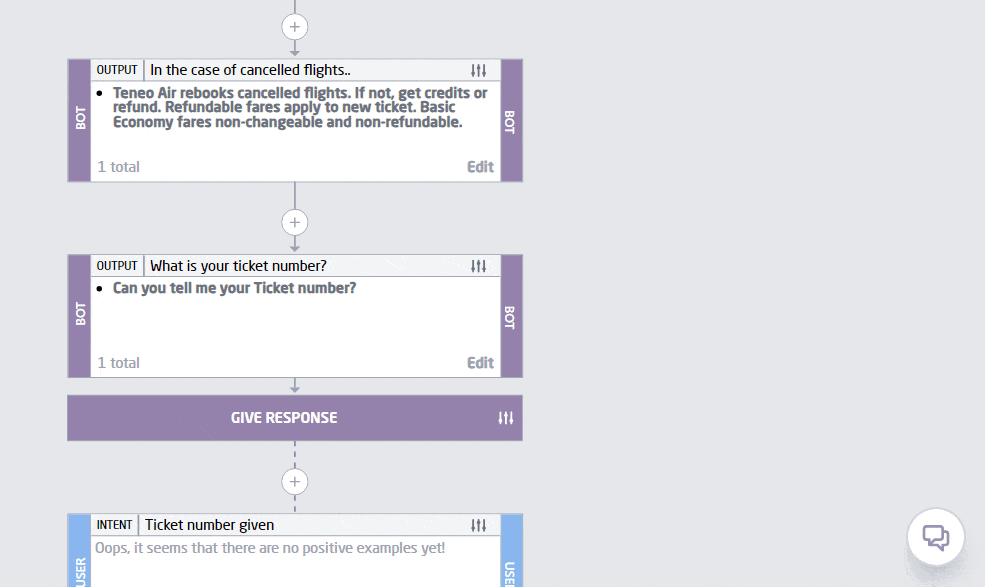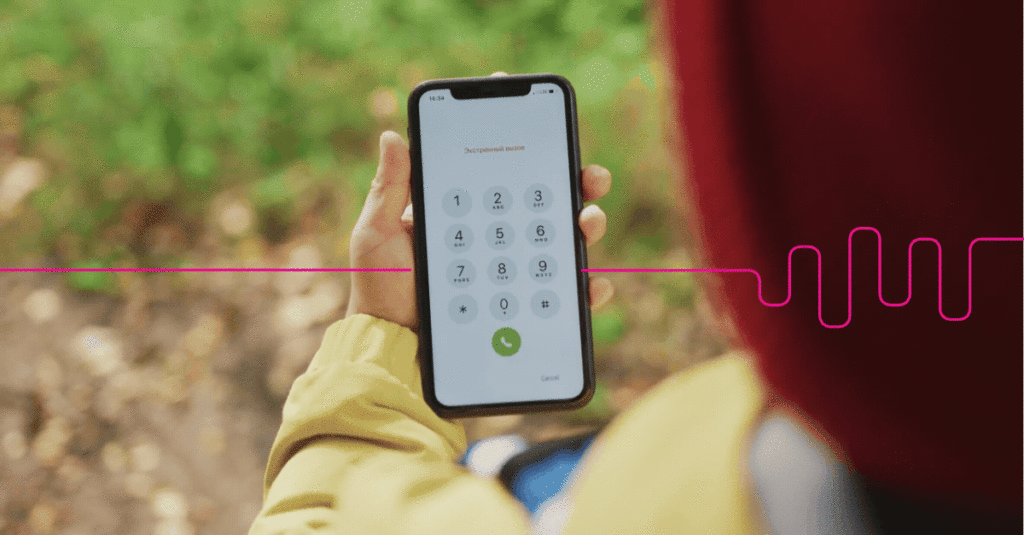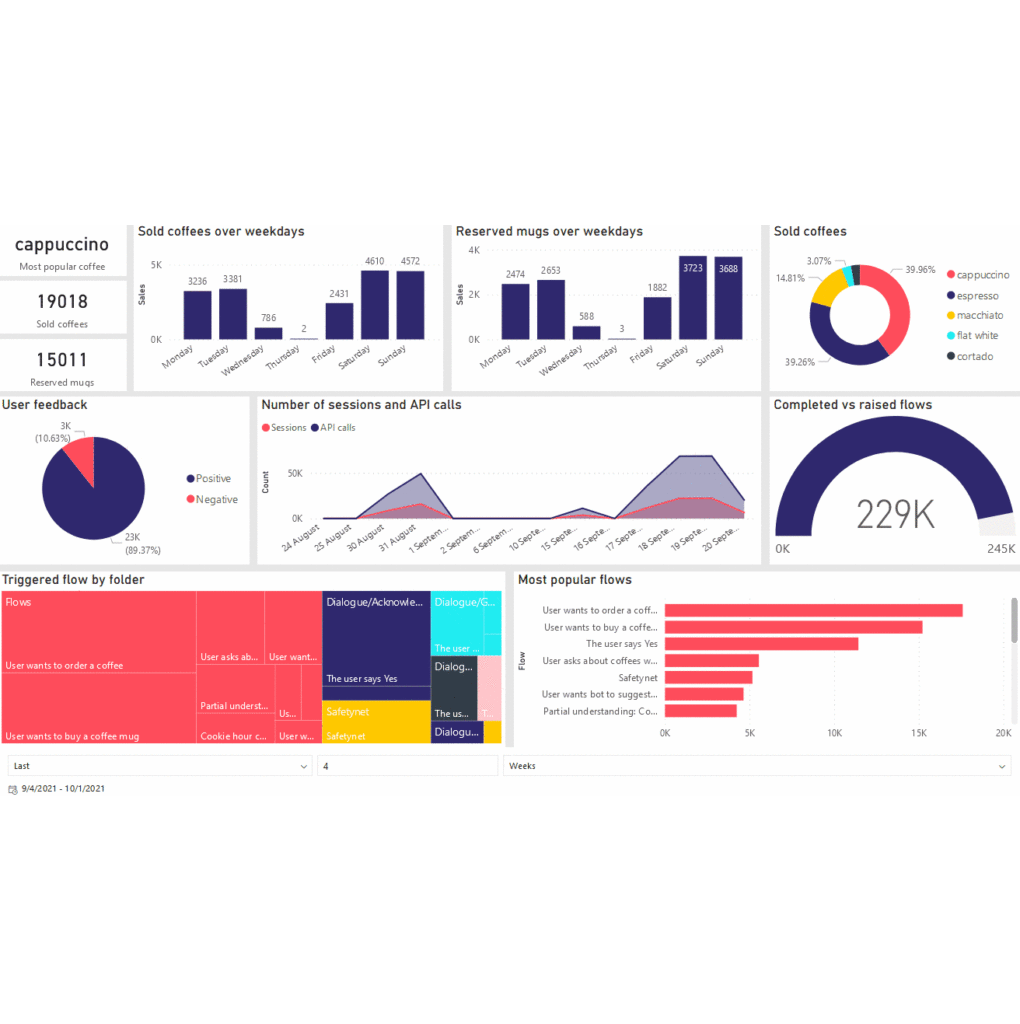In order to create seamless customer journeys, you have to make sure to think about Omnichannel Orchestration. But what exactly is it, and why is it so crucial? Let’s delve into the concept and uncover how it can transform customer journeys.
What is Omnichannel Orchestration?
Omnichannel Orchestration refers to the seamless integration and coordination of various customer interaction channels, both online and offline, to provide a unified and consistent experience. Unlike multichannel approaches, where each channel operates in silos, omnichannel orchestration ensures that all channels are interconnected, allowing for smooth transitions and coherent communication across touchpoints.

Key Elements of Omnichannel Orchestration:
- Integration of Channels: This involves connecting various platforms such as websites, social media, email, mobile apps, and physical stores to create a cohesive system.

2. Customer Data Synchronization: Centralizing customer data from different channels to maintain up-to-date information and provide personalized experiences.

3. Consistent Messaging: Ensuring that the brand message remains consistent across all channels.
4. Real-Time Interactions: Offering real-time customer support and engagement through chatbots, live chats, and social media interactions.

Why is Omnichannel Orchestration Important?
Enhanced Customer Experience
In the age of the customer, providing an exceptional experience is no longer optional—it’s essential. Omnichannel orchestration ensures that customers can transition smoothly between channels without having to repeat information or experience fragmented service. For instance, a customer could start a conversation on social media, continue it via email, and complete it in-store, all while feeling recognized and valued by the brand.

Improved Customer Retention and Loyalty
A seamless experience fosters customer satisfaction, which in turn builds loyalty. When customers feel understood and catered to across all touchpoints, they are more likely to return and engage with the brand repeatedly.

Increased Sales and Revenue
By delivering a personalized and frictionless shopping experience, businesses can drive conversions and increase sales. For example, a customer who abandons their cart online could receive a reminder email, a targeted ad on social media, or a discount offer in-store, encouraging them to complete their purchase. Here is an example of a Power BI dashboard presented with Teneo.

Operational Efficiency
Omnichannel orchestration not only benefits customers but also streamlines internal processes. By integrating channels and automating interactions, businesses can reduce redundancies, lower operational costs, and improve overall efficiency.
The Role of Teneo in Omnichannel Orchestration
Teneo is a powerful tool that plays a pivotal role in the realm of omnichannel orchestration. As an advanced conversational AI platform, Teneo enables businesses to create intelligent virtual assistants that can interact with customers across multiple channels seamlessly. Here’s how Teneo enhances omnichannel orchestration:
- Natural Language Understanding (NLU): Teneo’s sophisticated NLU capabilities allow it to understand and respond to customer queries with +95 accuracy, regardless of the channel.
- Cross-Channel Continuity: Teneo ensures that conversations can be picked up right where they left off, no matter the platform, providing a truly continuous experience.
- Personalization: With Teneo, businesses can leverage customer data to offer highly personalized interactions, enhancing customer satisfaction and loyalty.
- Scalability: Teneo is designed to handle large volumes of interactions across various channels, ensuring consistent performance and reliability.
By integrating Teneo into your omnichannel strategy, you can elevate your customer engagement to new heights, delivering a seamless, personalized, and efficient experience that meets the demands of today’s consumers.
Transform Your Customer Journeys with Teneo
Ready to revolutionize your customer engagement? Discover how Teneo can help you orchestrate an unparalleled omnichannel experience. Contact us today to learn more and start your journey towards seamless customer interactions.
FAQ
What is the difference between multichannel and omnichannel?
Multichannel refers to using multiple channels independently, while omnichannel integrates these channels to provide a cohesive customer experience.
How does omnichannel orchestration improve customer loyalty?
By delivering consistent, personalized experiences across all touchpoints, customers feel valued and are more likely to remain loyal to the brand.
Can small businesses benefit from omnichannel orchestration?
Yes, small businesses can significantly enhance their customer experience and operational efficiency through omnichannel orchestration.
How does Teneo enhance omnichannel orchestration?
Teneo enhances omnichannel orchestration by providing advanced NLU, cross-channel continuity, personalized interactions, and scalability.
Why is omnichannel important in a contact center?
Omnichannel is important in a contact center as it recognizes the diverse preferences of customers and enables businesses to interact with them through their preferred channels. This enhances customer satisfaction, builds stronger relationships, and improves overall customer service.
How can the effectiveness of omnichannel in a contact center be measured?
The effectiveness of omnichannel in a contact center can be measured using various metrics, including first contact resolution rates, customer satisfaction scores, and average handling time across all channels.
How can omnichannel be improved in a contact center?
To improve omnichannel in a contact center, focus on seamless channel integration, effective agent training, and implementing technologies that facilitate channel synchronization and customer data management. AI-powered tools like Teneo can be leveraged for real-time insights and enhanced service.

